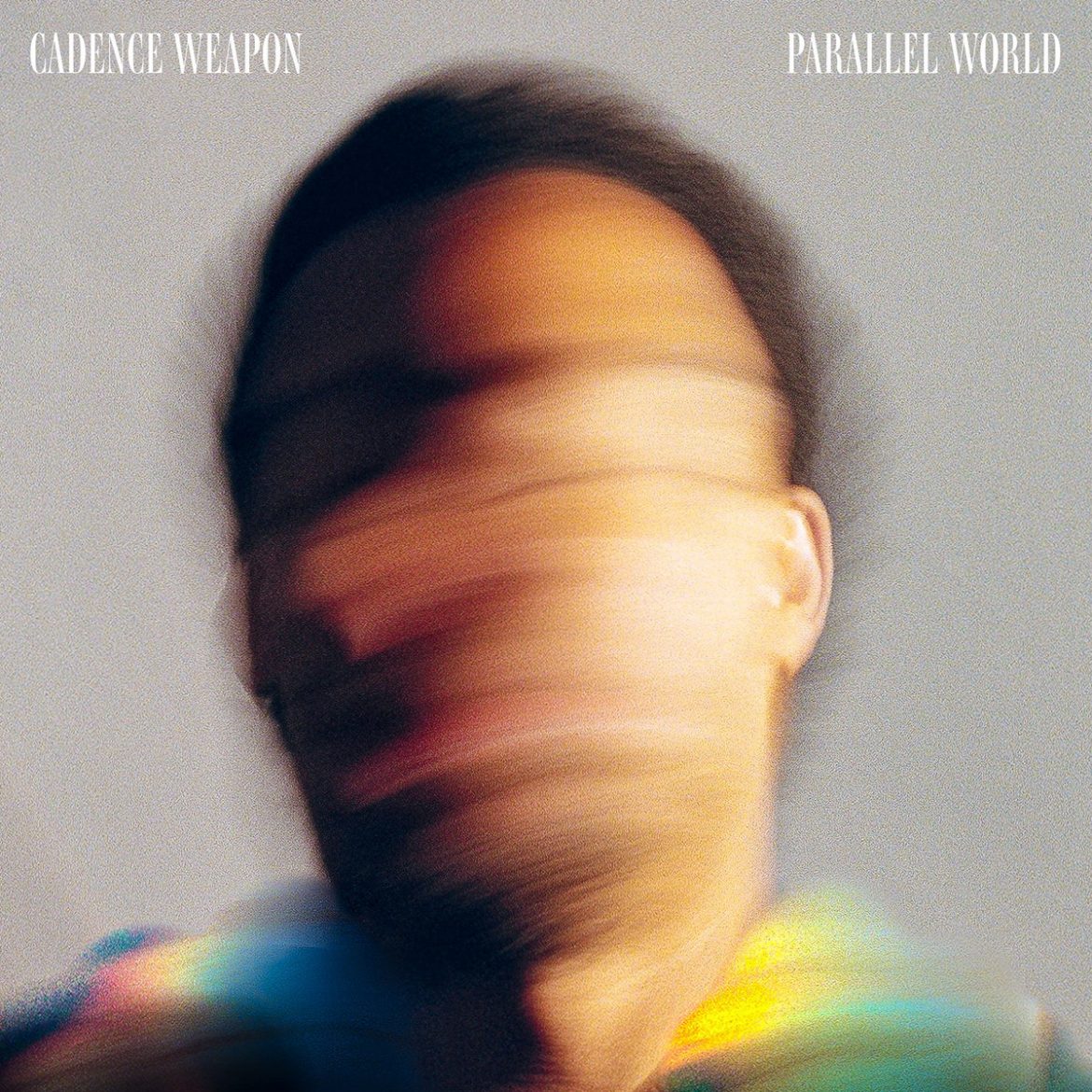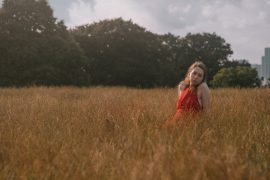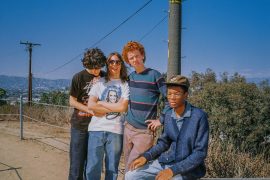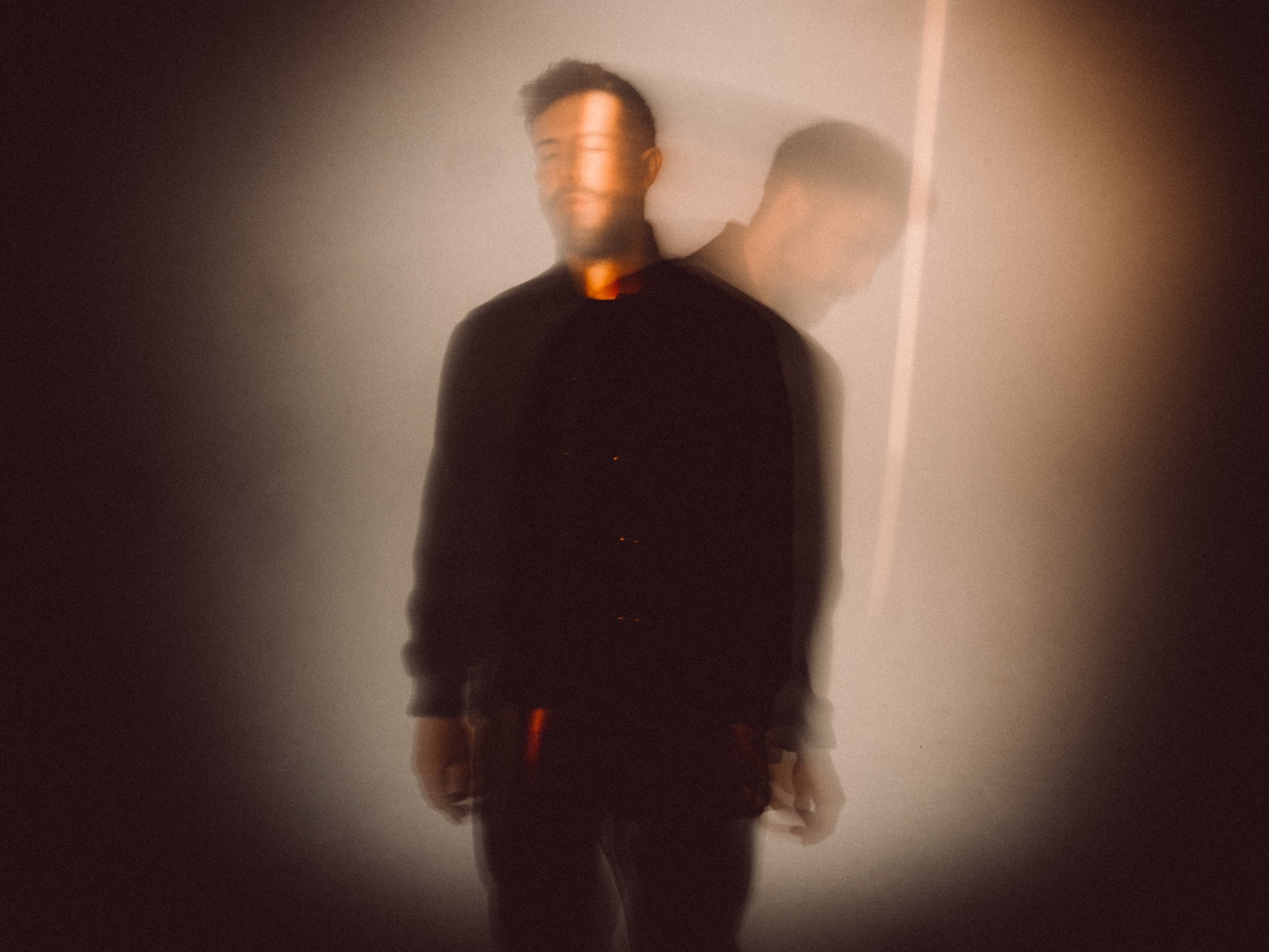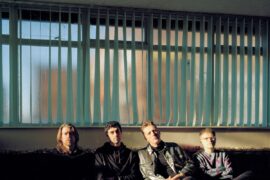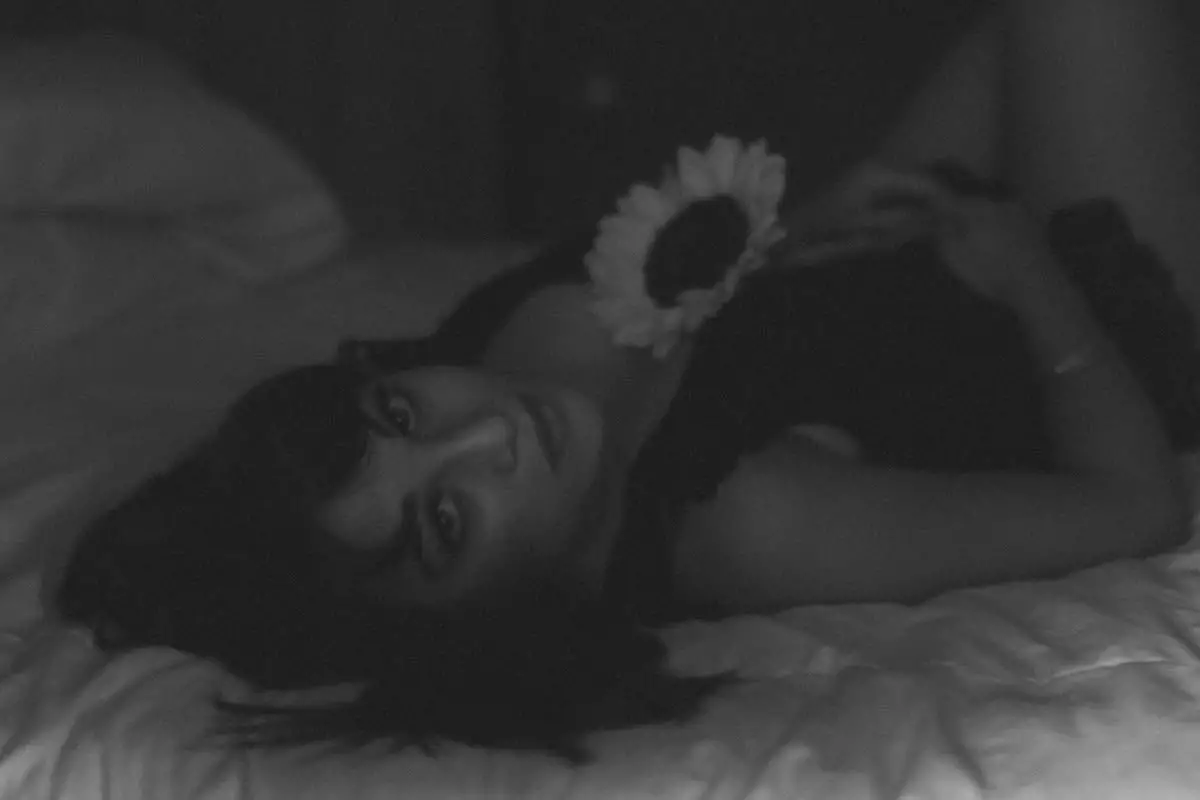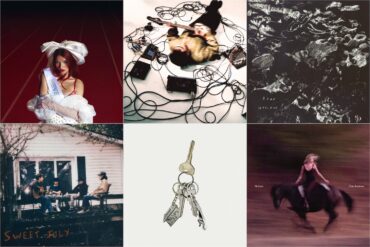Toronto’s Cadence Weapon has his eyes on the stars and his feet firmly on the ground on his fifth studio album, ‘Parallel World’.
Stream: ‘Parallel World’ – Cadence Weapon
I really wanted people to have that feeling, that you’re in ‘Parallel World’.
Few people can successfully marry big dreams with a lack of ego. An ego, after all, is a protective shield that shelters us from the heavy blows along the path to greatness. And yet, it flies in the face of the humility and the vulnerability required to make truly great art. Rollie Pemberton (known to most as the Toronto-based MC Cadence Weapon) has his eyes on the stars and his feet firmly on the ground — and he just released one of the best hip-hop records of the year.
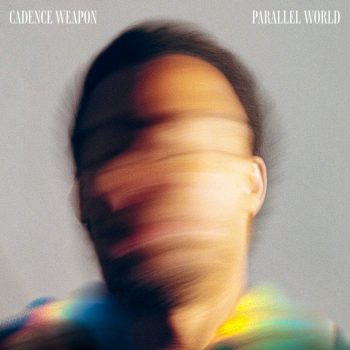
Pemberton is constantly devouring the world around him. You can usually find him with a book in his lap or a pen in his hand, trying to make sense of the world around him. Through his work as a poet, journalist and author we’re lucky to see his thought process and understand the world the way he does.
Released April 30, 2021 via eOne Music, Parallel World offers us this insight over some killer beats.
From the opening track to the final 808 blast, Cadence Weapon dissects society with a surgeon’s precision. Nothing is off limits; systemic racism, gentrification, Black Canadian history, the surveillance state — he tackles it all. It’s an album in the old school sense of the word: Ten songs that operate as a solid unit, most rewarding when consumed as a whole, and loaded with easter eggs for the most dedicated listener.
“Africville’s Revenge” discusses the barely known history of Canada’s vile treatment of Africville residents in Nova Scotia, which within Black Canadian history has become a symbol for their treatment across the whole country. “Water” is a track about water shortages disguised as a hype track, while “Connect” discusses how we live in an online, virtual world. But worry not, for even these big topics are made approachable and enjoyable by Cadence Weapon’s effortless flow and engaging beats. The end result is an album you can get lost in or just rock to.
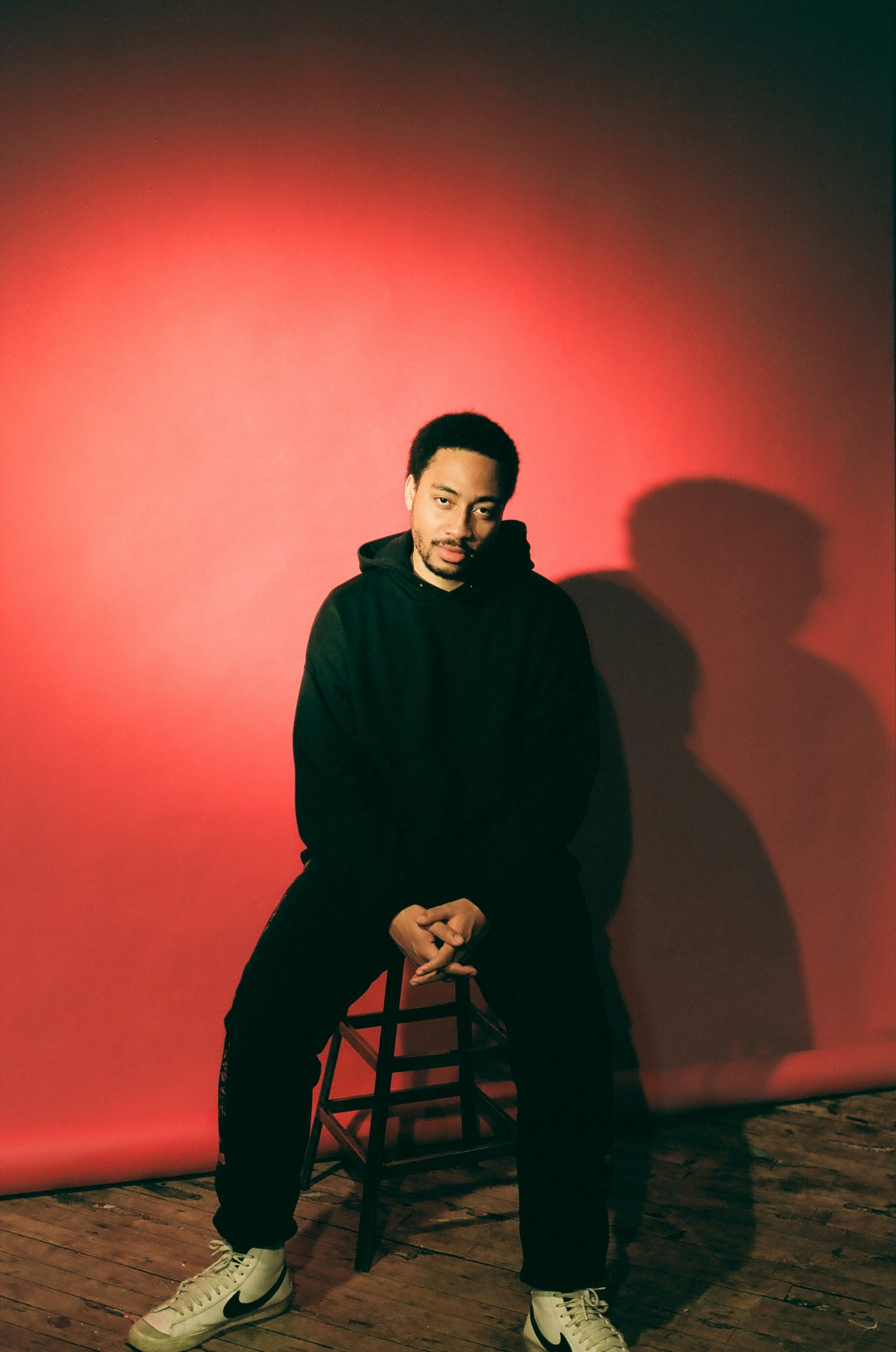
Motivating every song is his drive for greatness, or as Cadence Weapon more accurately words it, “permanence.”
He isn’t looking for awards or accolades or shout-outs from other stars. No, Cadence Weapon wants to create a socially conscious record that stands up to Sly Stone, Marvin Gaye, and Gil Scott Heron. Like them, he wants to speak to today in a way that resonates forever.
On Parallel World, he may have done it.
Fuck making music for whatever the platform is right now that people are into – I’m making music for people who really care about records, but also for people who listen to NPR and read The New Yorker.
— —
:: stream/purchase Parallel World here ::
A CONVERSATION WITH CADENCE WEAPON
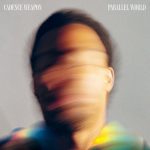
Atwood Magazine: What are your thoughts on feelings on the record, now it’s finished?
Cadence Weapon: I’m just really over the moon, super excited for people to hear it. I personally think it is my most fully realized album. I haven’t had an opportunity to have this level of sustained focus to work on a record since my very first album, when I lived at home with my mom.
That's one of the paradoxes of becoming famous right: The bigger you become the more opportunities you get, but conversely that leaves you less time to do the stuff that made you made you big in the first place.
Cadence Weapon: Exactly. I never expected that when I first started. Sometimes it’s funny, like, I get all these opportunities to do different things, but then the time to do my main thing, make music, seems to be less and less and less, the longer I do it. Go figure.
It's a nice problem to have.
Cadence Weapon: Before I started working on this album, early last year, I was doing lots of different projects that weren’t making my own music, but were really interesting musical things. I was at the Banff Centre for a couple different projects, I was acting in a play in Montreal for a month in February of last year called Please Thrill Me. It’s cool to have different, artistic opportunities, but I’m really happy to be in album mode right now.
When you go and do all of these different opportunities - like acting in the play, or writing your book or being poet laureate of Edmonton - what impact do these other mediums have when you come back to making music?
Cadence Weapon: When I’m doing some writing I feel like perhaps I look at the subjects that I’m writing about in a more journalistic way. I feel like that really inspired this most recent album. Whether it’s working on the book and really thinking about the span of my career and how things have unfolded, what it was like working on other albums that just made me think of how I wanted to do things differently with this one. But I guess the main thing was I was reading a lot of news, reading a lot of articles, reading a lot of books, watching all the uprisings and protests in America and seeing all the protests here in Toronto. And I was just really inspired by this increased civic engagement, but also by the fact that we’re seeing our institutions have collapsed. And, the things that we relied on and thought had our best interests in mind are flimsier than we realized.
Is this why this record feels a lot more directly political than your previous albums?
Cadence Weapon: Yeah, absolutely. I mean, it’s partly because of just like what I saw in the world, and I felt like I really had a responsibility to really speak to what was happening in the world. But I also feel like it’s an evolution of my writing and how it’s changed musically. I feel like I’ve touched on some of these subjects more vaguely on previous albums, where it’s like, for instance, I talked about gentrification many times here and there, like, “High Rise” on my last album. But, what I wanted to do this album was to have something where it’s all tied in together where there’s multiple references to some of these ideas. And it’s like, the more that you listen and more in depth that you listen to it, the more of these themes come up. So, yeah, I feel like as a result of that this album has been my most socio politically conscious record.
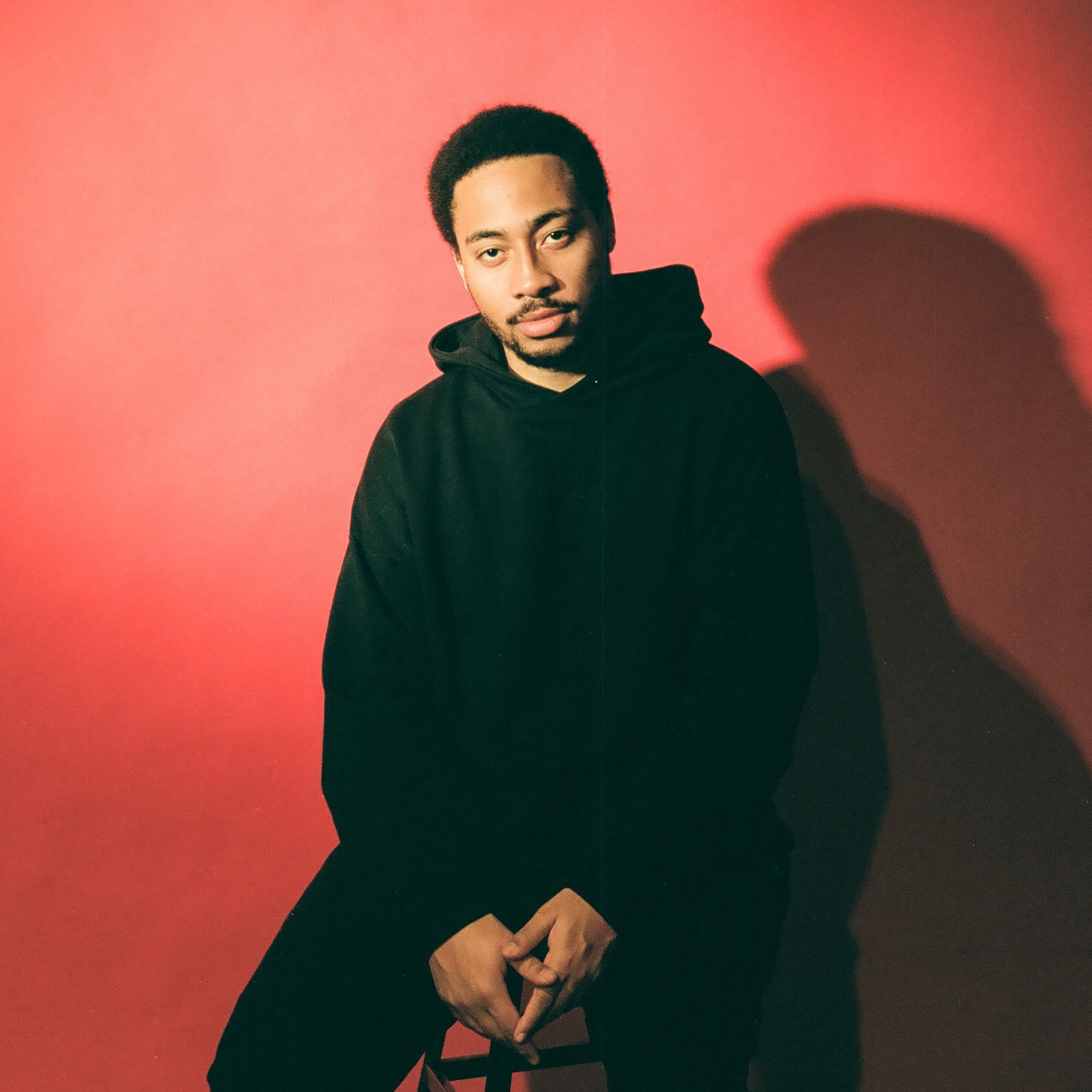
You wrote recently about Marvin Gaye and his thoughts on the artist's debt to society: How much does that concept play into this record and the idea of being more politically minded?
Cadence Weapon: I was very inspired by that. I definitely had a lot of time to study over the pandemic, and just kind of thinking about timeless artists who really spoke to their times and challenged the status quo and challenged the powers that be. Whether it’s somebody like Sly Stone, Marvin Gaye or Gil Scott Heron, Chuck D, Public Enemy, The Clash. I was thinking back to these kinds of artists and I really was inspired to make music like that, because I wanted to make something that had a certain permanence to it. I find that all those records, when I go back and listen to them, yeah, they’re talking about very specific political issues that were happening in their communities or in their world at that time but I feel like it’s still timeless, because of their decision to speak out about these things.
cadenceweapon.substack.com/p/the-death-of-the-artist
It must be fascinating for you right now, researching the careers of these great artists at the same time you're looking back at and researching your own career for your book?
Cadence Weapon: It’s a weird time to be an artist today because, you know, to compare myself to somebody like Marvin Gaye, he didn’t have Twitter. He didn’t have to deal with social media. The expectations of what you end up having to do as an artist nowadays, I have to approach things from so many different angles. In a lot of ways I’m my own greatest PR team or whatever with social media. But yeah, it’s interesting to think about those parallels.
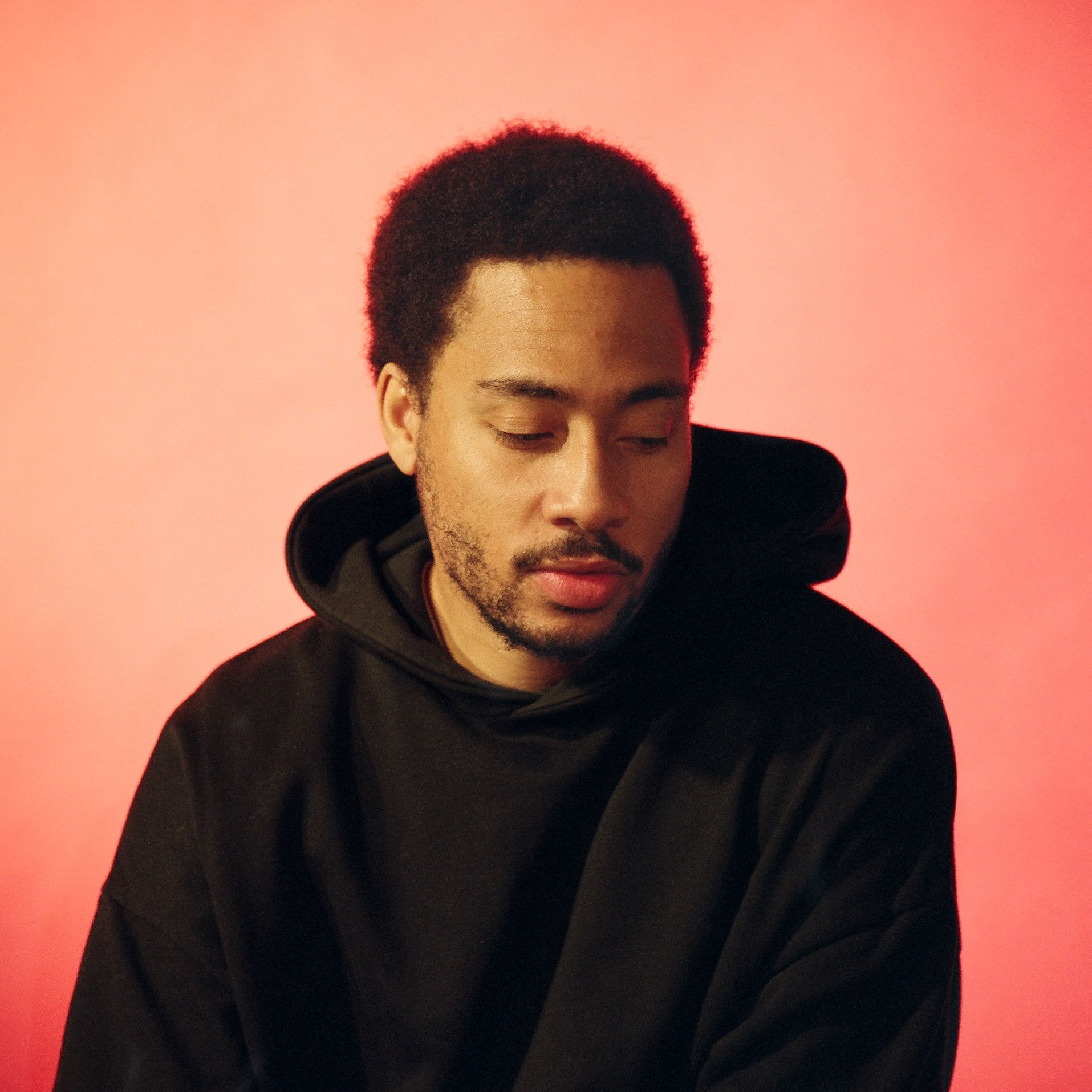
So I know we've kind of beat around this, but what are the themes, the through lines, and dominant emotions of this record?
Cadence Weapon: Some themes that come up a lot are racial profiling. There’s some themes of like protecting Black Canadian history, systemic racism, structural inequality, surveillance comes up a lot, gentrification. I think one of the main themes, though, would be perception versus reality. That’s something that I think comes up throughout the album, and it’s this idea of whether it’s through the internet or also through how we’re perceived as Black people walking through life and how we perceive ourselves.
So what do you want listeners to walk away thinking or feeling?
Cadence Weapon: I really wanted to make something that was meaningful and to be useful to people in multiple different ways. I don’t want any specific thing from the audience. I hope that people can appreciate it on whatever level they want to. One of the things I wanted was you can play through this record, and really not pay attention to the lyrics at all and be like, ‘this is a banging record.’ But then if you really hone in on the lyrics, you realize that there’s multiple levels of understanding lyrically that you can get from the album.
In Canada we have a tendency to be very much like 'we don't have a race problem, that's in America. We didn't have slavery, that was America.' And this record is really important to drive home that Canada is racist and Canada did have slavery, all of these problems are on our doorstep, too. How on your mind was this when you were writing this?
Cadence Weapon: Oh, definitely. I feel like that was a lie that was told to me a lot when I was younger, growing up in Edmonton, just growing up in Canada, that racism didn’t exist here. They’re like, ‘there’s no slavery in Canada,’ which isn’t totally true. It really required me to do a lot of research and you know, specifically for a song like ‘Africville’s Revenge,’ I never learned about Africville in school. I felt a certain responsibility like I know about these things, I could speak to them, I’m a Black Canadian, maybe people from around the world will learn about Canada in a different way when they listen to this record.
Because it's amazing how little of that we actually know and are taught.
Cadence Weapon: Yeah, it’s crazy. Also, I felt like just my existence as the kind of artist that I am, there’s not a lot of people who are platformed or promoted, who speak about things like this, who rap about stuff like this. I have this thing where I really want to support preserving Black Canadian history and I feel like, I even represent that in myself, because I represent this perspective that isn’t usually prioritized.
Do you get tired of this though? Are you like like 'I just want to make an album about getting drunk and falling in love'?
Cadence Weapon: [laughs] Well, that’s the thing, it’s easy to do that though. I find it very easy to make tracks like that—and I don’t begrudge anybody who does and it is fun to do that—but I also don’t want to make it seem like this album is like I’m forcing people to take medicine and eat health food. This is a very fun sounding album, that is just like really cool music in my opinion. I still see music as an art form. I want to make music that’s on par with Sly and the Family Stone’s There’s A Riot Going On. There’s certain standards of quality that I’m trying to reach that maybe aren’t what everyone else is doing. I feel like we’re in a world where people are more prioritizing having hit singles on Spotify and stuff and on TikTok and I’m not interested in that. I just have a different way of seeing things and I just want to make something that has permanence, that will last a long time, and I feel like the best way I can do that is by making meaningful music.
I can make an album today that is just like some cool sounding stuff, that’s very easy for me to do. But what’s hard is to make something that is meaningful and that has some kind of significance to it, that is on par with a book or a documentary. That’s what I’m comparing myself to. I’m not comparing myself to some fucking guy who’s making some tunes for TikTok that’s only supposed to be popping for the next week. I want my music to live forever. And maybe I’m crazy, maybe I’m delusional, [laughs] but it is who I am. I can’t go against that impulse.
There is a fanbase that still wants albums and records like yours are a welcome relief to them.
Cadence Weapon: Yeah, I’m trying to make music for them. Like fuck making music for whatever the platform is right now that people are into – I’m making music for people who really care about records, but also for people who are the kind of people who listen to NPR and read The New Yorker, and read all the nerdy books that come out every year — all the Obama booklists books, like I’m making records for them. That’s my ideal audience.
— —
:: stream/purchase Parallel World here ::
— — — —

Connect to Cadence Weapon on
Facebook, Twitter, Instagram
Discover new music on Atwood Magazine
? © Scott Pilgrim
:: Stream Cadence Weapon ::

